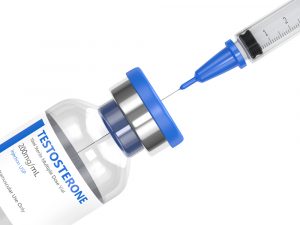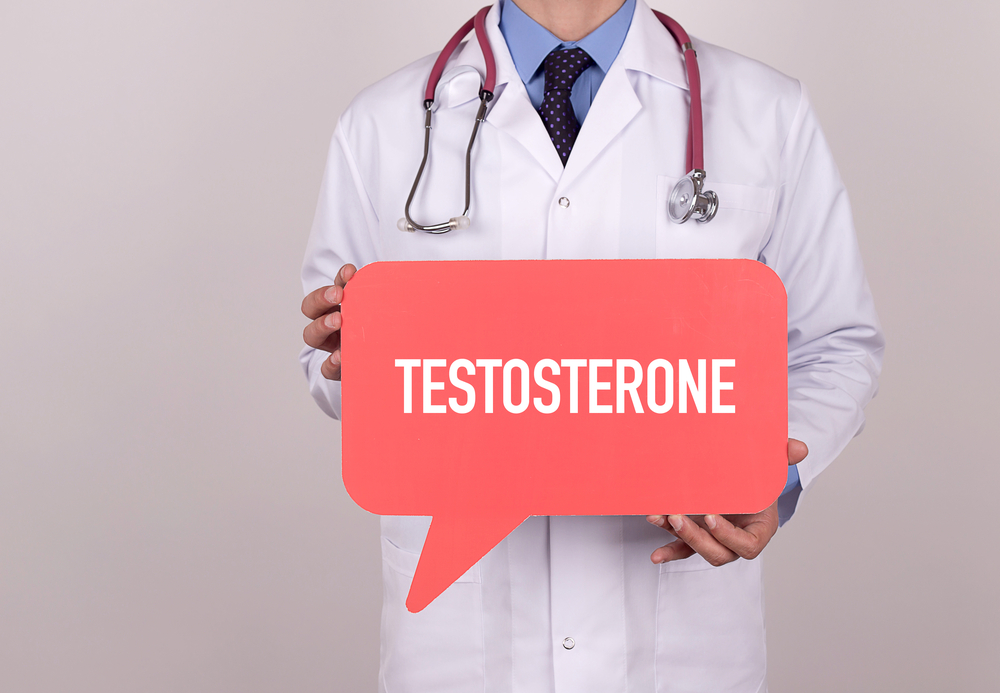Levels of various hormones in the body don’t remain constant at all times, and they go up and down influenced by a number of factors. Testosterone is not the exception here. Production and concentration of this important hormone decline with age, but the problem becomes even worse with the presence of risk factors such as obesity, alcohol consumption, exposure to estrogenic compounds, just to name a few.
Okay, you’re well aware of low testosterone but what doctor works with these cases? Should you see a urologist or someone else? Scroll down to learn more.
When to see a doctor?
Men are reluctant to see a doctor when some problems occur, especially if they’re affecting sexual performance. Guys usually don’t feel liberated to discuss these issues with their brothers, friends, or any other male. The sheer idea of scheduling an appointment to see the doctor may seem like something you’re definitely not willing to do, but you shouldn’t rule it out. In fact, it’s useful to see a healthcare provider about this problem as you can get a useful insight into low testosterone issue and first-hand recommendations into treatment options. But when you should see the doctor?
You should definitely schedule an appointment to see a doctor if these red flag symptoms of low testosterone occur:
- Low libido
- Low sperm count
- Hot flashes! (yes, men can have them too)
- Unexplained hair loss
- Difficulty achieving or maintaining an erection
- Low bone density
Additional symptoms that may occur include:

- Fatigue
- Testicular changes
- Insomnia
- Increased body fat
- Reduced lean muscle mass
- Increased hemoglobin A1c
- Depression
Symptoms of low testosterone are numerous, and they have the potential to affect your quality of life. It’s useful to consult a doctor when the above-mentioned symptoms occur. Ignoring obvious signs that something is wrong in the body is never a good idea.
Can urologists treat low testosterone?
So you decided to get a professional opinion about symptoms you’ve been experiencing, but aren’t sure whether you should find a urologist or some other healthcare professional? There are a few options here making the whole process a lot easier. For instance, the easiest thing to do is to schedule an appointment at your doctor’s office.
You probably have your doctor, and it can also be the right person to contact about symptoms associated with low testosterone. Your physician will either order a blood test to examine testosterone levels or recommend seeing a urologist. This leads us to the answer to the title question – yes, the urologist can help men with low testosterone. After all, the urologist is a healthcare professional who deals with problems affecting your sex organs. Urologist provides primary care, especially in cases when low testosterone symptoms are severe. Bear in mind that men experience these symptoms differently. In some guys, signs of low-T are mild and easy to deal with, but in other men, they can be quite frustrating to bear.
Men who experience fertility issues, especially when the couple is trying to conceive, will benefit from consulting an endocrinologist. Endocrinologists specialize in the treatment of hormonal imbalances and the improvement of fertility caused by these particular problems.
The appointment is scheduled, what to expect?
Okay, you scheduled the appointment and now what? As a guy, you’re not really thrilled about discussing your sexual performance and other issues with a doctor or a total stranger, and the nervousness worsens when you’re not sure what to expect. Don’t worry, your stress and nervousness will go away entirely once you step into the doctor’s office. A urologist or some other healthcare provider won’t ask out of blue “hey, do you have low testosterone.” Instead, they will start with simple questions about your sexual performance, whether you’ve noticed some changes lately, and start a conversation which can yield a great deal of much-needed information for them to conclude what’s wrong.
Make sure you inform the healthcare professional about all changes and symptoms you have been experiencing lately. Symptoms along with blood test results are vital for accurate diagnosis and proper treatment measure. Always bear in mind that a urologist or some other healthcare provider doesn’t judge. He (or she) listens to your symptoms and explains what’s going on. They are professionals who deal with these cases on a daily basis, without judging.
How can I boost testosterone naturally?

A major reason why some men don’t want to see the doctor is the belief they’ll have to start with testosterone therapy. That’s not the case, actually. Doctors don’t prescribe testosterone therapy to everyone, in most cases, production and concentration of testosterone can improve in a natural manner.
The use of dietary supplements and male enhancement pills can be the easiest and most effective way to boost testosterone production. Of course, not all products are equal. While some supplements are effective, others are not. It’s always more practical to opt for products such as Male UltraCore which are formulated with high-quality ingredients. They support the production of testosterone in an entirely natural way.
Other ways to boost testosterone naturally include:
- Get enough sleep
- Manage stress
- Don’t drink too much alcohol
- Quit smoking
- Eat a healthy diet
- Ditch junk food
- Don’t drink from plastic bottles
- Exercise regularly
Conclusion
Urologists, endocrinologists, as well as general medical practitioners can treat problems related to low testosterone. Avoid ignoring symptoms you experience. A proactive approach is always the best choice for your health.







